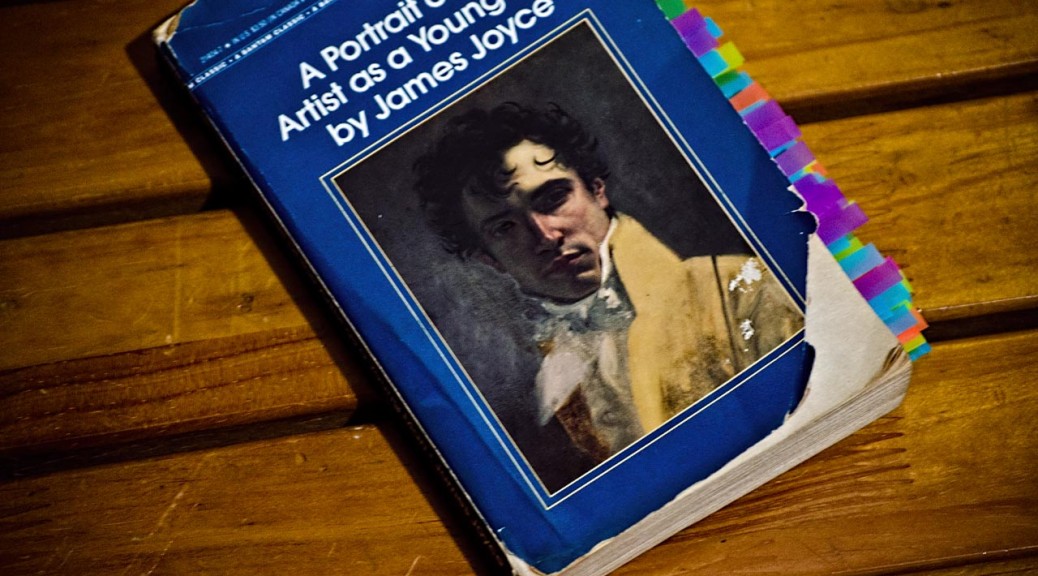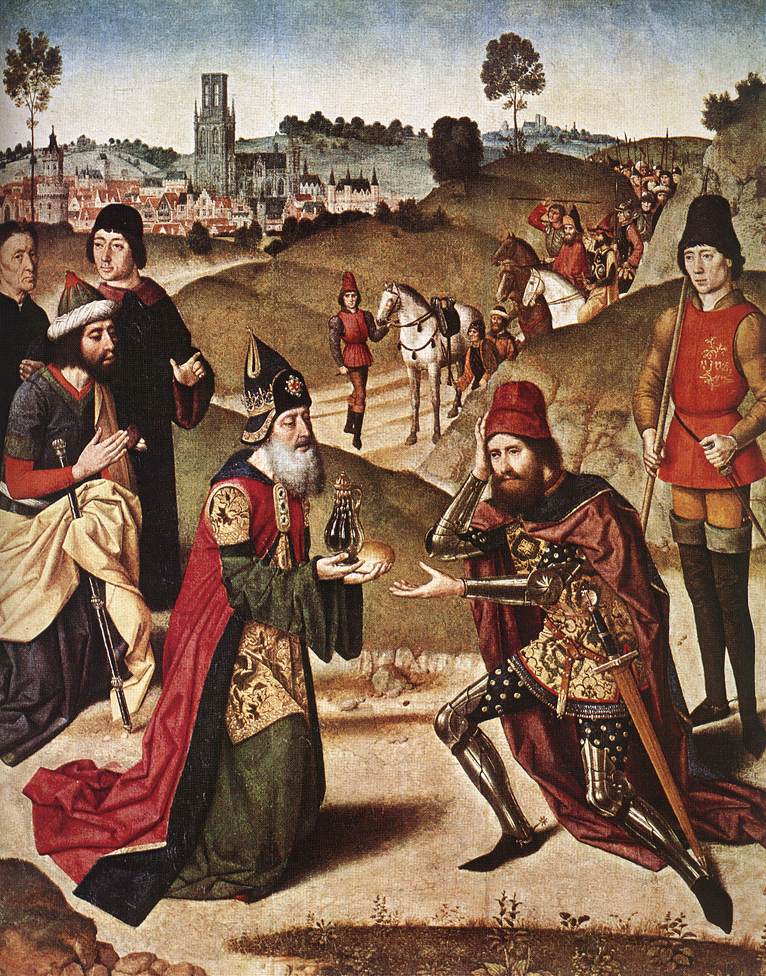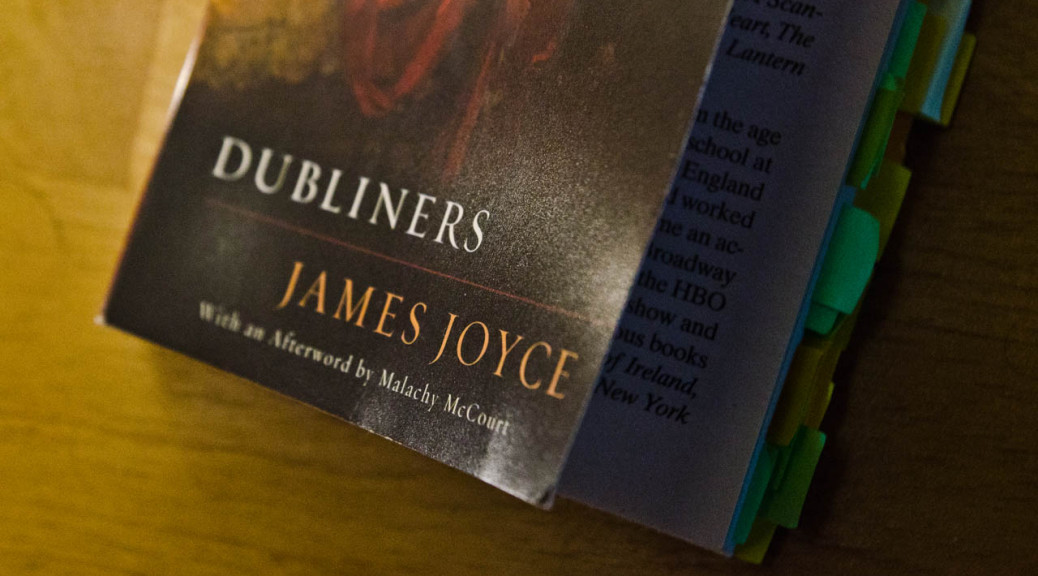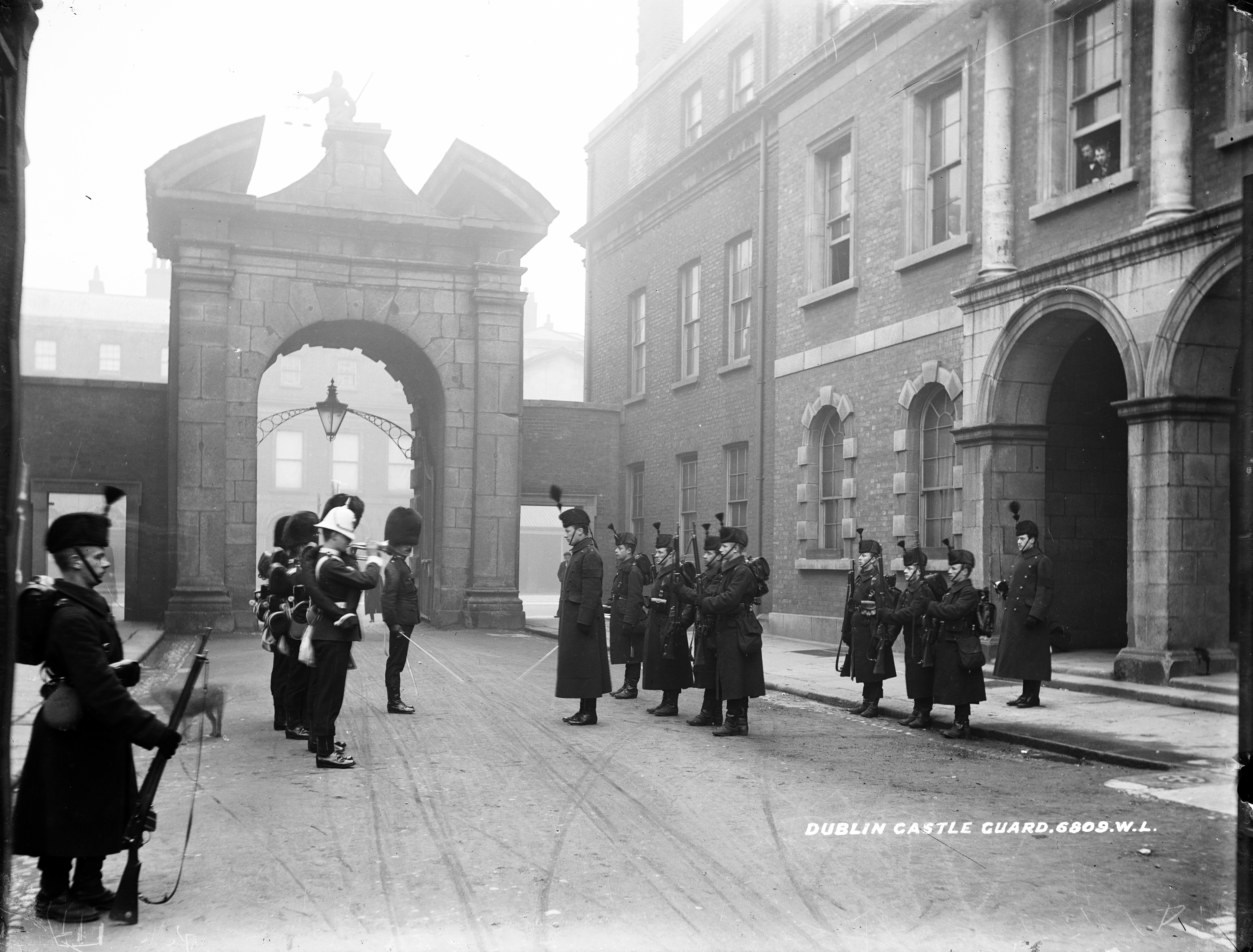Joyce, James. A Portrait of The Artist as a Young Man. New York: Bantam Books, 1992. Print. (First Edition 1916).
—
“-Pity is the feeling which arrests the mind in the presence of whatsoever is grave and constant in human sufferings and unites it with the human sufferer.” p. 198
“-The tragic emotion, in fact, is a face looking two ways, towards terror and towards pity, both of which are phases of it. You see I use the word arrest. I mean that the tragic emotion is static. Or rather the dramatic emotion is. The feelings excited by improper art are kinetic, desire and loathing. Desire urges us to possess, to go to something; loathing urges us to abandon, to go from something. The arts which excite them, pornographical or didactic, are therefore improper arts. The esthetic emotion (I use the general term) is therefore static. The mind is arrested and raised above desire and loathing.-” p. 199
“The long slender flattened skull beneath the long pointed cap brought before Stephen’s mind the image of a hooded reptile. The eyes, too, were reptilelike in glint and gaze. Yet at that instant, humbled and alert in their look, they were lit by one tiny human point, the window of a shrivelled soul, poignant and self-enbittered.” p. 200
“Beauty expressed by the artist cannot awaken in us an emotion which is kinetic or a sensation which is purely physical. It awakens, or ought to awaken, or induces, or ought to induce, an esthetic stasis, an ideal pity or an ideal terror, a stasis called forth, prolonged and at last dissolved by what I call the rhythm of beauty.-” p. 200
“-Art-said Stephen-is the human disposition of sensible or intelligible matter for an esthetic end.” p. 201
“-Aquinas-said Stephen-says that is beautiful the apprehension of which pleases.-
Lynch nodded.
-I remember that-he said-Pulcra sunt quae visa placent.-” p. 201
“-Static therefore-said Stephen-Plato, I believe, said that beauty is the splendour of truth. I don’t think that it has meaning but the true and the beautiful are akin. Truth is beheld by the intellect which is appeased by the most satisfying relations of the intelligible; beauty is beheld by the imagination which is appeased by the most satisfying relations of the sensible. The first step in the direction of truth is to understand the frame and scope of the intellect itself, to comprehend the act itself of intellection. Aristotle’s entire system of philosophy rests upon his book of psychology and that, I think, rests on his statement that the same attribute cannot at the same time and in the same connexion belong to and not belong to the same subject. The first step in the direction of beauty is to understand the frame and scope of the imagination, to comprehend the act itself of esthetic apprehension.” p. 202
“though the same object may not seem beautiful to all people, all people who admire a beautiful object find in it certain relations which satisfy and coincide with the stages themselves of all esthetic apprehension. These relations of the sensible, visible to you through one form and to me through another, must be therefore the necessary qualities of beauty.” p. 203
Saint Thomas Aquinas

An altarpiece in Ascoli Piceno, Italy, by Carlo Crivelli (circa 1435–circa 1495) – The Yorck Project: 10.000 Meisterwerke der Malerei. Via Wikimedia.
****”Aquinas says: Ad pulcritudinem tria requiruntur integritas, consonanita, claritas. I translate it so: Three things are needed for beauty, wholeness, harmony and radiance. Do these correspond to the phases of apprehension? … You see it as one whole. You apprehend its wholeness. That is integritas… You apprehend it as complex, multiple, divisible, separable, made up of its parts, the result of its parts and their sum, harmonious. That is consonantia… he had in mind symbolism or idealism, the supreme quality of beauty being a light from some other world, the idea of which the matter was but the shadow, the reality of which it was but the symbol. I thought he might mean that claritas was the artistic discovery and representation of the divine purpose in anything or a force of generalization which would make the esthetic image a universal one, make it outshine its proper conditions… The radiance of which he speaks in the scholastic quidditas, the whatness of a thing. This supreme quality is felt by the artist when the esthetic image is first conceived in his imagination. The mind in that mysterious instant Shelley likened beautifully to a fading coal. The instant wherein that supreme quality of beauty, the clear radiance of the esthetic image, is apprehended luminously by the mind which has been arrested by its wholeness and fascinated by its harmony is the luminous silent stasis of esthetic please, a spiritual state very like to that cardiac condition which the Italian physiologist Luigi Galvani, using a phrase almost as beautiful as Shelley’s, called the enchantment of the heart.-” p. 206-207
***”These forms are: the lyrical form, the form wherein the artist presents his image in immediate relation to himself; the epical form, the form wherein he presents his image in mediate relation to himself and to other; the dramatic form, the form wherein he presents his image in immediate relation to other.-” p. 208
“Here are some questions I set myself: Is a chair finely made tragic or comic? Is the portrait of Mona Lisa good if I desire to see it? Is the bust of Sir Philip Crampton lyrical, epical or dramatic? If not, why not?-
-Why not, indeed?-said Lynch, laughing.”
“The simplest epical form is seen emerging out of lyrical literature when the artist prolongs and broods upon himself as the centre of an epical event and this form progresses till the centre of emotional gravity is quidistant from the artist himself and from others. The narratice is no longer purely personal. The personality of the artist passes into the narration itself, flowing round and round the persons and the action like a vital sea. This progress you will see easily in that old English ballad Turpon Hero, which begins in the first person and ends in the third person. The dramatic form is reached when the vitality which has flowed and eddied round each person fills every personal with such vital force that he or she assumes a proper and intangible esthetic life. The personality of the artist, as first a cry or a cadence or a mood and then a fluid and lambent narrative, finally refines itself out of existence, impersonalizes itself, so to speak. The esthetic image in the dramatic form is life purified in and reprojected from the human imagination. The mystery of esthetic like that of material creation is accomplished. The artist, like the God of creation, remains within or behind or beyond or above his handiwork, invisible, refined out of existence, indifferent, paring his fingernails.-” p. 208-209
“A fine rain began to fall from the high veiled sky and they turned into the duke’s lawn, to teach the national library before the shower came… ‘No wonder the artist retired within or behind his handiwork after having perpetrated this country.-” p. 209









